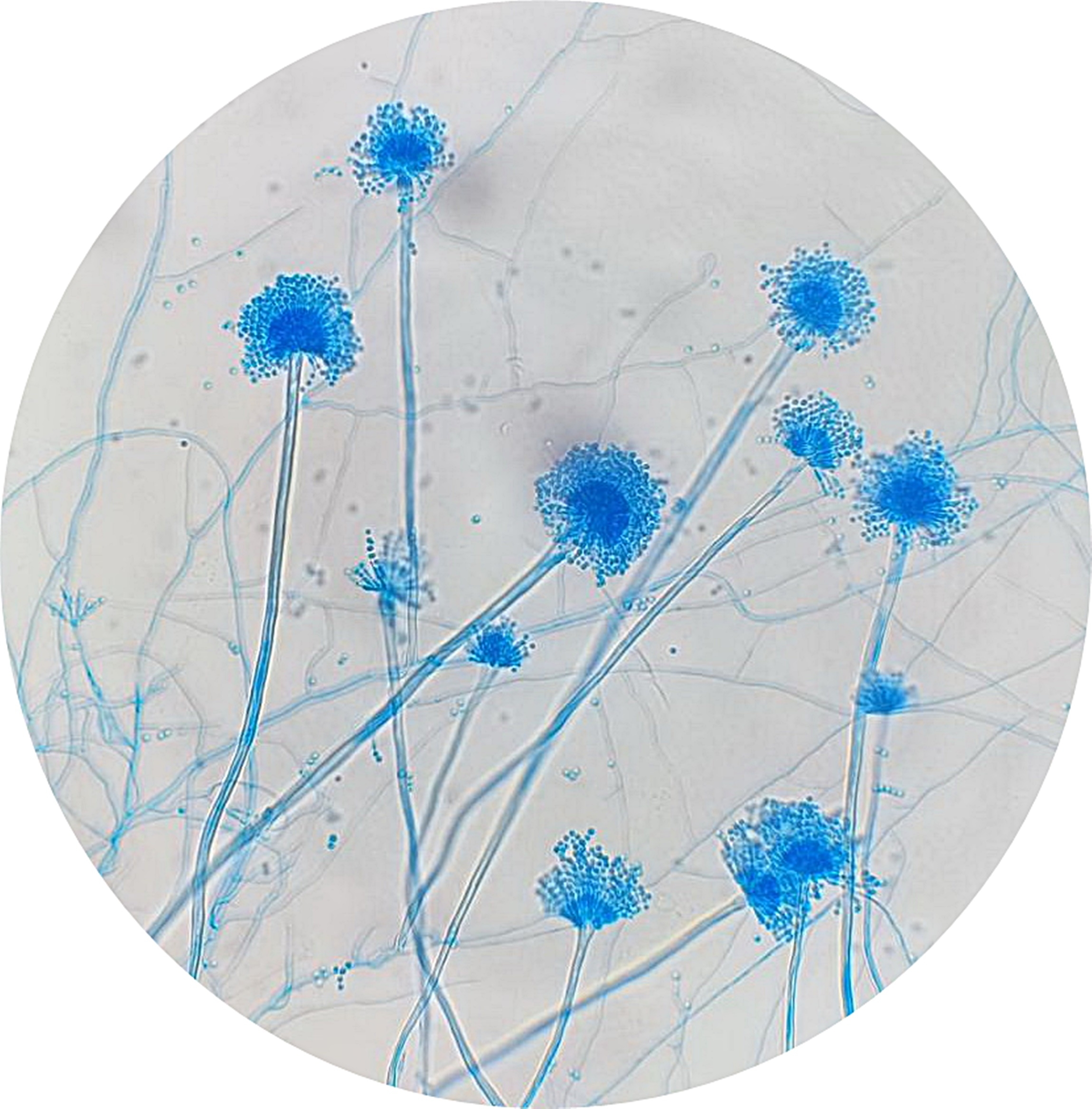
New Strategy AV21 programmes to explore space, rare fungi, and our identities
29. 01. 2024
Over the next five years, three new Strategy AV21 programmes of the CAS will help decipher the unknown variables of our world: Identities in a World of Wars and Crises, Fungi – New Threats and Opportunities, and Space for Humankind, which builds on an eponymous completed project but asks new questions. How do the research programmes fulfil the motto of Strategy AV21, “Top research in the public interest”, and what will they specifically focus on?
Our society finds itself faced with new challenges all the time. Whether these relate to the need to find new materials and technologies or to understand societal processes, science has the potential to provide answers. Recognising that the best results can be achieved by working together with other research institutes, Strategy AV21, or the Strategy of the Czech Academy of Sciences for the 21st Century, responds to these challenges.
“As part of its fifteen programmes, Strategy AV21 emphasises interdisciplinarity and cooperation not only between the institutes of the Czech Academy of Sciences, but also with external partners, such as universities or the private sector,” says Jiří Plešek from the Academy Council of the CAS, who is tasked with the coordination and conceptual development of Strategy AV21, adding that this project has a very good reputation among partners. “I believe that the trio of new programmes will be successful in this respect as well.”
Read about the new programmes in the following interviews with their coordinators.

Space for Humankind programme
Coordinator: Jiří Svoboda, Astronomical Institute of the CAS
Coordinating institute: Astronomical Institute of the CAS
In what way are the aims of your programme in “the public interest”?
Our programme focuses on space research, ranging from the Earth and its surroundings to black holes and the most distant galaxies. The aim is not only to advance our knowledge, but also to develop the technologies we need to build the next generation of scientific instruments. There is potential for Czech industry to also participate in the development of new space technologies. We are therefore striving to foster synergy between CAS institutes and the industry.
How can the development of space tech be useful to the public?
Everyday life is getting more and more dependent on space tech, such as satellite navigation or global communications. Technologies developed for space research also find application, such as CCD sensors used in mobile phone cameras. That is why the Czech Republic’s involvement in space projects is certainly in the public interest of our society.
The duration of the programme is five years. What do you want to achieve in this allotted time?
We are working on expanding and strengthening space research in the Czech Republic and becoming more involved in international projects – be these space missions or terrestrial space observatories. We are trying to make use of our membership in organisations such as the European Space Agency (ESA) and the European Southern Observatory (ESO). We are also planning to prepare experiments that could be implemented on the International Space Station by a Czech astronaut who was recently selected for the ESA backup team. But, of course, the programme has other objectives as well.
Such as?
In total, we are researching 21 topics in five areas: remote sensing of the Earth, weather, and climate change; exploration of the Sun and Solar System; challenges and risks of the cosmic environment; remote space research; and development of space technologies. The programme co-creates and is part of an interdisciplinary community that addresses complex space projects.
What are the benefits of cooperating with other institutions?
The CAS institutes have a broad scope of research and adequate facilities. By fostering synergic cooperation between them, we can address the complex issues that arise in the development of space missions. The interest of CAS institutes in the programme in question is substantial also due to space research improving, offering opportunities to further develop knowledge and tech. We are also establishing external cooperation – from universities to governmental agencies to industry players. For instance, we plan to work with the Czech Hydrometeorological Institute on meteorological satellite observations.
On the other hand, what are some disadvantages that can come up with a substantial number of institutions working together like this?
A certain fragmentation of teams. Particularly in follow-up projects, such as contracts with ESA, we have to deal with each contract separately. It would also help to have a joint laboratory where we could all share equipment and staff. But I am certain we will manage to handle all that regardless.
________________________________________
Fungi – New Threats and Opportunities programme
Coordinator: Miroslav Kolařík, Institute of Microbiology of the CAS
Coordinating institute: Institute of Microbiology of the CAS
How does your programme fulfil the Strategy AV21 motto, “Top research in the public interest”?
As part of our programme, we want to look for new natural substances that would be useful for humankind. We are targeting substances that could be used in medicine, agriculture, and food, focusing on improving the quality of life and connecting cutting-edge research teams. We also want to focus on new mycotic diseases.

What have you set as the main goals you want to achieve in five years?
We will focus on neglected, little-known, and difficult-to-study groups of fungi. As part of our research, we want to look for new natural substances and their potential use for humankind. We will be aided in this endeavour with the latest methods for studying the genome and methods for determining the structure of chemical substances. In addition to the need to find new medicines, we are facing an increasing incidence of new diseases caused by fungi. In conjunction with clinical facilities, we will detect pathogenic microscopic fungi, search for their origins, and propose new diagnostic and therapeutic solutions.
Do you plan to popularise the topic of fungi and involve the public somehow?
Public awareness of fungi is narrowed down to “big fungi”. Microscopic fungi, i.e., moulds and yeasts, remain neglected, as far as research is concerned. We want to remedy this and popularise the topic of fungi as much as possible. Among other things, we plan to publish the first ever atlas of microscopic fungi. The public will benefit from citizen science, as we plan to involve amateur mycologists and high school students.
How, specifically?
In the Open Science (Otevřená věda) programme we have involved seven students in two projects. Six of them are already working on the “Monitoring of Air Quality in Prague Schools” project. The students will monitor the amount of mould and bacteria found in six high schools in Prague. They will monitor the situation directly in classrooms and the surrounding outdoor environment throughout the entire year. Our aim is to determine the relationship between the amount of microorganisms found in indoor and outdoor spaces, the individual seasons, and other environmental factors such as humidity, the amount of dust particles, and temperature.
The involvement of which other CAS institutes outside our institution would you highlight?
Typical projects involve two to three CAS institutes. Our project brings together eight CAS institutes, which will allow us to develop a full-fledged joint operation supported by five years of funding. The involvement of the Institute of Botany, the Institute of Organic Chemistry and Biochemistry, and the Institute of Molecular Genetics will be key to the project. As far as the commercial sphere is concerned, we will involve companies active in the field of biotechnology, especially those producing natural substances.
________________________________________
Identities in a World of Wars and Crises programme
Coordinator: Martin Klečacký, Masaryk Institute and Archives of the CAS
Coordinating institute: Masaryk Institute and Archives of the CAS, Institute of Ethnology of the CAS
Why is the issue of identities important for contemporary society?
Nowadays, the question of identity or identities is a hot topic. We are witnessing a questioning of the world order from a geopolitical point of view. Society is faced with questions whose goal is to revise existing values. Identity or identity-forming elements in the form of history, language, nationality, religion, and other elements can be purposefully and manipulatively exploited, thereby influencing the perception of one’s own identity and self-determination in relation to others. At the same time, we have noticed that the issue of identities and related questions are often addressed in the public sphere by laypeople – if not outright misinformers. This is why we plan to integrate and interconnect research potential. After all, who else should have the main say in relation to identities but the researchers who are systematically investigating them.
What specifically will you be focusing on?
Four main topics. They engage both with the situation beyond the borders of the Czech Republic as well as the situation in our country and the challenges that our society must face. I am referring not only to the economic crisis, but also to the migration wave associated with the war in Ukraine and the deepening polarisation of society. These are issues that are related to cohesion, which is, of course, linked precisely to the question of identity.
What other institutes and institutions are you working with?
I would like to mention the cooperation of a large number of CAS institutes from the third research area [Humanities and Social Sciences] already in the preparation phase of the programme. Regarding the question of identities and identity politics in relation to current societal challenges, we have found a topic that touches on the basic research specialisations of many institutes that focus on humanities and social sciences. As to our research partners outside the Czech Academy of Sciences, we have established cooperation with seven foreign universities, both in and outside of Europe, which I think clearly testifies to how “explosive” the topic of identities is and what potential it has.
What are the advantages of such extensive cooperation?
Interconnecting the specialisations of almost the entire third research area allows us to produce results significant for research and for its transfer into public policies and popularisation projects. Equally important is research on the disintegration of the existing world order. In certain contexts, there is even talk of a new Cold War. Indeed, relations between the USA and Russia, the USA and China, and Russia and the European Union show signs of ill-concealed hostility. The propaganda and manipulation associated with these tensions are often related to identities. The Czech Republic is, of course, part of the global geopolitical scene. It could hardly navigate it on a political, economic, and communication level unless it has at its disposal relevant information and data.
Prepared by: Zuzana Dupalová and Luděk Svoboda, External Relations Division, CAO of the CAS
Translated by: Tereza Novická, External Relations Division, CAO of the CAS
Photo: Shutterstock The text and photos are released for use under the Creative Commons license.
The text and photos are released for use under the Creative Commons license.
Read also
- “Fat can be extracted even from thousand-year-old pottery,” says V. Brychová
- Evolution, alive and well. What lies at the heart of biodiversity?
- From an evolutionary POV, vision has a great benefit–cost ratio, researcher says
- Badminton buzz: Tournament draws 76 athletes from the Academy’s institutes
- Unique reproductive strategy confirmed in another frog species in Moravia
- Hydrochemist Martin Pivokonský on how to improve water and wastewater treatment
- Involved in groundbreaking research, Ukrainian archeologist now works at the CAS
- The first human presence in Europe securely dated to 1.4 million years ago
- The CAS visited by chess grandmaster and Russian opposition activist Kasparov
- The CAS will support scientists whose research is at risk in their home country
The Czech Academy of Sciences (the CAS)
The mission of the CAS
The primary mission of the CAS is to conduct research in a broad spectrum of natural, technical and social sciences as well as humanities. This research aims to advance progress of scientific knowledge at the international level, considering, however, the specific needs of the Czech society and the national culture.
President of the CAS
Prof. Eva Zažímalová has started her second term of office in May 2021. She is a respected scientist, and a Professor of Plant Anatomy and Physiology.
She is also a part of GCSA of the EU.